In today’s world, where both addiction and mental faculties are ravaging the lives of millions of people, we are in strong need of caring experts who have undergone the process of recovery themselves and are willing to mentor others. That is where Peer Coach Academy comes in, an emerging trend referred to as the disruption of behavioral health.
No matter what stage you are at, whether you are already working in the field or whether you have just started on the path, joining a Peer Coach Academy can completely change your life and the lives of the people you assist. This roadmap of 2025 explains all you need to know about peer coaching, about how this connects with Substance Abuse Counselor Training, SAC Programs, and Certification in Behavioral Health, and how you can start a successful career.
Let’s dive into this life-changing field.
What Is Peer Coaching?
Peer coaching can be described as a form of recovery-based support in which individuals with a personal lived experience of substance use, mental illness challenges, and a combination of both, are trained to assist others in their own recovery.
The Peer Coach Training designed by a Peer Coach Academy offers evidence-based and highly structurized Peer Coaching with skills that empower participants with coaching instruments, communication strategies and skills, ethical scope of practice and trauma-informed approaches.
Whereas clinical professionals can only provide a clinical service, peer coaches can inspire one with empathy, lived wisdom, and motivation to foster the distance between the treatment and live recovery.
Why Peer Coaching Matters in 2025
1. Behavioral Health Is a National Priority
Behavioral health has also been increasing in priority in the U.S. Department of Health & Human Services. Mental support and substance use disorder assistance have become part of healthcare facilities, school system, and community programs.
2. Peer-Led Recovery Is Proven Effective
Studies have revealed that individuals who have built a support network yield to a higher chance of sustained recovery, utilizing services, and empowerment. There is more of a need than ever to have trained peer coaches- in hospitals and detox centers, nonprofits, and in private practice.
3. Entry Point Into the Behavioral Health Field
To a lot of people, Peer Coach Academy is merely the beginning of a bigger career path. It naturally gives rise to training in Substance Abuse Counselor work, Behavioral Health Certification as well as participation in the advanced SAC Programs.
What You Learn in Peer Coach Academy
All our curriculums at Peer Coach Academy are developed to give out a well rounded, competent, and ethical peer professional.
1. Core Peer Coaching Principles
- Recovery-Oriented Systems of Care (ROSC)
- Person-centered and harm reduction
- The models of empowerment and self-determination
2. Coaching & Communication Skills
- Active listening
- Motivational interviewing
- Setting of goals and monitoring accountability
3. Boundaries, Ethics, and Confidentiality
- HIPAA compliance
- Ethical dilemmas in peer roles
- Cultural humility
4. Trauma-Informed Support
- Recognizing trauma triggers
- Safety planning
- Integrating trauma recovery into coaching
5. Navigation and Advocacy
- Connecting clients to services
- Navigating insurance and legal systems
- Promoting client rights and autonomy
Several programs also draw concepts covered by Peer Counseling Certification Training and establish advanced credentials or future Recovery Coach Academy certifications.

How Peer Coach Academy Connects with Other Programs
Peer coaching is not in a silo. It is a constituent of the larger behavioral health world. This is the way it touches other training tracks:
Substance Abuse Counselor Training
Although peer coaches never diagnose or treat, most continue their education to become a Substance Abuse Counselor Training to offer clinical help. It makes sense as a graduate step upwards to peer professionals to increase their credentials and scope.
SAC Programs
Substance Abuse Counseling programs (SAC Programs) is a bit more clinical, many of these programs need degrees and supervised hours. Most people enter through peer coaching and proceed to take a SAC credential.
Certification in Behavioral Health
A Certification in Behavioral Health offers you an all-inclusive knowledge of mental health, trauma, and addiction. This dual path when aligned with the course of study known as Peer Coach Training enables the practitioner to have a significant work outcome within any treatment environment.
Peer Counseling Certification Training
Numerous academies design their courses around Peer Counseling Certification Training with graduates being able to assume positions as peers in mental health clinics and schools and hospitals.
Steps to Becoming a Peer Coach Through a Peer Coach Academy
Step 1: Find the Right Academy
Search for accredited or state-approved programs. Use search engines and directories to find a Peer Coach Academy that aligns with your goals.
Try queries like “state-approved Peer Coach Academy in Waukesha Wisconsin or look for academies that offer bundled options with Peer Counseling Certification Training.
Step 2: Enroll in a Training Program
Most programs include:
- 40–80 hours of instruction
- Live virtual or in-person classes
- Peer-to-peer simulations and assessments
Training can be completed in 4–12 weeks depending on the format and schedule.
Step 3: Certification or Credentialing
After training, you may apply for recognition through:
- State behavioral health boards
- National peer coaching alliances
- Medicaid billing certification (if applicable)
Many graduates also consider enrolling in Recovery Coach Academy to pursue specialized tracks or continue into Substance Abuse Counselor Training.
Career Opportunities After Peer Coach Academy
Once trained, peer coaches can work in various roles, including:
| Setting | Role |
| Rehabilitation Centers | Group facilitator, recovery support staff |
| Community Mental Health Clinics | Peer coach, outreach specialist |
| Hospitals / ERs | Peer support advocate |
| Schools & Colleges | Youth recovery mentor |
| Telehealth Platforms | Virtual peer coach |
| Private Practice | Entrepreneurial Peer Coach Training consultant |
Many also work part-time while pursuing additional certifications like Certification in Behavioral Health or enrolling in SAC Programs.
Online vs. In-Person Peer Coach Training
| Feature | Online Peer Coach Academy | In-Person Peer Coach Academy |
| Flexibility | High | Moderate |
| Hands-On Practice | Virtual simulations | Live role plays |
| Peer Networking | Forums, Zoom groups | Class-based community |
| Cost | Often more affordable | Includes classroom costs |
| Great For | Working adults, rural learners | Students who prefer structure |
Whether online or in-person, ensure the program prepares you to transition into Peer Counseling Certification Training or other advanced programs if needed.
Building a Career After Peer Coach Academy
Combine Credentials
Start with Peer Coach Training, then build your resume with:
- Peer Counseling Certification Training
- Trauma-informed care courses
- Certification in Behavioral Health
- Enrollment in SAC Programs
Choose Your Path
- Clinical track: Move into therapy or counseling with additional education
- Community track: Work in nonprofits, shelters, and peer-run organizations
- Entrepreneurial track: Launch your brand as a private peer coach or join a Recovery Coach Academy as a trainer
Final Thoughts: Is Peer Coach Academy Right for You?
Whether you are interested in recovery, mental health, or lived experience you wish to convert into purpose then Peer Coach Academy is an ideal place to begin.
It’s flexible
It’s affordable
It is revered by behavioral health community
It gets one access to SAC Programs, Recovery Coach Academy, and expanded care delivery positions
Combining life experience with formal education in Peer Coach Training you can become a change leader, enable others to find their voice, empower themselves and have some freedom.
Are you prepared to make a difference? Join a Peer Coach Academy now and take the first step towards a very rewarding and quickly expanding profession in behavioral health.
